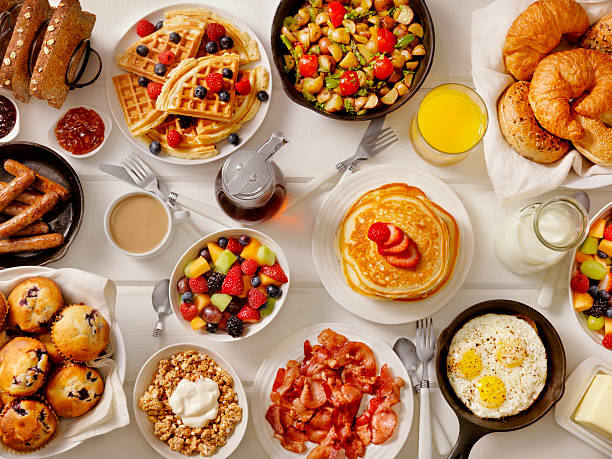The question of how many calories one should consume at breakfast is a complex one, and there are many factors that can influence the answer. Factors such as age, sex, weight, height, activity level, and overall health can all play a role in determining the appropriate number of calories for an individual’s breakfast. However, there are some general guidelines that can help provide a starting point for determining how many calories one should eat for breakfast.
One of the most important factors to consider when determining how many calories one should eat for breakfast is their overall daily calorie needs. The average adult needs between 1,600 and 2,400 calories per day, depending on their activity level and overall health. However, it’s important to note that these numbers are just a general guideline and one should consult with a nutritionist or dietician for personalized recommendations based on their individual needs and goals.
Another important factor to consider when determining how many calories one should eat for breakfast is the time of day. Many experts recommend consuming a large portion of one’s daily calories earlier in the day, rather than later. This is because research suggests that consuming more calories earlier in the day can help to improve metabolism, reduce hunger and cravings, and promote weight loss. Additionally, eating a large breakfast can also help to reduce the risk of developing type 2 diabetes, as well as improve mental and physical performance.
When it comes to determining the specific number of calories that one should consume at breakfast, there is no one-size-fits-all answer. However, as a general guideline, most experts recommend that the average adult consume around 400-500 calories for breakfast. This can include a combination of carbohydrates, protein, and healthy fats, such as whole grain toast with peanut butter and a banana, or a bowl of oatmeal with almond milk and berries.
It’s also important to note that consuming too many calories at breakfast can be just as detrimental to one’s health as consuming too few. Consuming a large breakfast high in calories can lead to feelings of sluggishness and fatigue later in the day, as well as contribute to weight gain.
In addition to these recommendations, it’s also important to pay attention to the quality of the food consumed at breakfast. Eating a well-balanced breakfast that includes a variety of nutrient-dense foods, such as fruits, vegetables, whole grains, and lean protein, can help to ensure that the body is getting the nutrients it needs to function properly throughout the day.
A healthy breakfast should contain between 250 and 400 calories, depending on your overall calorie needs. If you’re trying to lose weight, aim for the lower end of the calorie range, while if you’re trying to gain weight, aim for the higher end.
Here are some examples of breakfast options that fall within the recommended calorie range:
A bowl of oatmeal with chopped fruit, nuts, and a drizzle of honey contains around 300 calories.
A veggie-packed omelette made with two eggs and spinach, mushrooms, and tomatoes contains around 350 calories.
A smoothie made with Greek yogurt, frozen berries, and spinach, combined with a slice of whole grain toast with peanut butter can be around 400 calories.
It’s also worth mentioning that some people may find it more convenient to have a smaller breakfast, with the intention to eat a larger lunch and dinner. This approach, often known as Intermittent fasting or time-restricted eating, has been proven to have some health benefits too but consulting with a medical professional before starting is recommended.
In addition to paying attention to the number of calories you consume at breakfast, it’s also important to focus on the quality of the foods you’re eating. Processed and sugary foods should be avoided, as they can lead to a spike in blood sugar levels, followed by a crash later on in the morning. Instead, opt for whole, nutrient-dense foods like fruits, vegetables, whole grains, and lean proteins.
In conclusion, how many calories you should be eating for breakfast depends on a number of factors, including your age, weight, height, and activity level. A healthy breakfast should contain between 250 and 400 calories and should be balanced with a mix of carbohydrates, proteins, and healthy fats. By focusing on the quality of the foods you’re eating and paying attention to your calorie needs, you can ensure that you’re getting the nourishment you need to start your day off right.

 Home
Home Health
Health Diet & Nutrition
Diet & Nutrition Living Well
Living Well More
More













